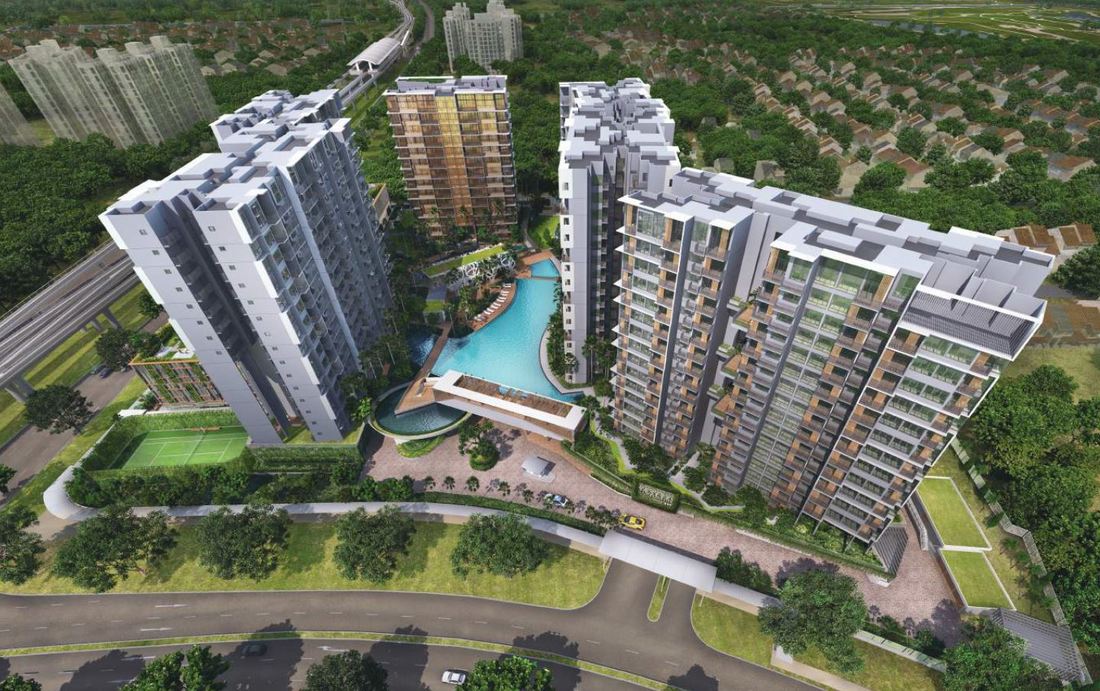Tighter financial conditions and ongoing trade tensions have increased risks to global financial stability even as Singapore's system remains resilient, the Monetary Authority of Singapore (MAS) said. Rising interest rates and pressure on currencies could affect governments, corporates and households, particularly those that have borrowed in foreign currencies, making it harder for them to pay off their debts. But stress tests that MAS has conducted showed that companies, banks and households can withstand external shocks, though they need to guard against weaknesses, said the regulator's Financial Stability Review released. For example, companies should exercise financial prudence and watch out for headwinds though corporate balance sheets have remained broadly stable amid a supportive operating environment.
Business groups positive as Heng looks set to be fourth PM
Armed with a clean bill of health by his doctors and a steely resolve to serve Singapore and its people, Finance Minister Heng Swee Keat said he was "deeply conscious" of the heavy responsibility he is taking on at the ruling People's Action Party (PAP). The 57-year-old was elected as the party's first assistant secretary-general, a powerful post that paves the way for him to become Singapore's fourth prime minister after the next general election (GE). He chaired the session alongside Trade and Industry Minister Chan Chun Sing, whom Mr Heng had earlier asked to be his deputy. Mr Chan, 49, was elected as second assistant secretary-general in the PAP's Central Executive Committee, the party's highest decision-making body. Both men are now on course to become deputy prime ministers when Prime Minister Lee Hsien Loong - who has made known his wish to step down before he turns 70 in 2022 - makes the next round of changes to his Cabinet line-up.
Govt seeks to modernise wholesale industry with digital roadmap
A guide to help SMEs in the wholesale trade on their journey towards more efficient processes has been launched. Called the Wholesale Trade Industry Digital Plan (IDP), the guide comprises a three-stage digital roadmap that charts out the different solutions that wholesale trade SMEs can adopt at each phase of their growth, as well as the relevant training programmes required to enhance employees' digital skill sets. Contributing about 16 per cent of the nation's gross domestic product (GDP) in 2017, the wholesale trade industry is largely burdened by paper-ridden, old-fashioned processes. Within the sector, SMEs account for about 97 per cent of total outfits. Administered by Enterprise Singapore and the Infocomm Media Development Authority (IMDA), the IDP is one of the strategies under the wholesale trade Industry Transformation Map rolled out last year to help more trading companies adopt digital technology and internationalise. According to data from the Department of Statistics, more than 80 per cent of sales in the wholesale trade are derived from overseas markets. Therefore, it is highly influenced by the evolving global trading environment such as the rise of digital business-to-business (B2B) marketplaces and the use of blockchain and artificial intelligence to improve trade processes.
Singapore and Argentina will start talks next year on a pact to avoid double taxation, and plan to conclude negotiations on an investment treaty by the first half of next year. Also, a first round of talks on a free trade agreement between Singapore and the South American Customs union Mercosur is scheduled to take place by the first quarter of next year. Argentina is the incoming chair of Mercosur, whose other members are Brazil, Paraguay and Uruguay. The timelines for the agreements were agreed during a breakfast meeting between Prime Minister Lee Hsien Loong and Argentinian President Mauricio Macri. PM Lee, who is on a four-day working visit to Argentina, will attend the G-20 summit in capital Buenos Aires this weekend.
Headline inflation flat at 0.7% in October
Headline inflation was unchanged last month from September as private road transport costs again declined, although pricier electricity and gas are still putting the squeeze on consumers. The consumer price index, which measures cost rises for all items, rose 0.7 per cent in October over the same month last year - the same pace of increase since August this year. This was a hair's breadth beneath the 0.8 per cent forecast in a Bloomberg survey of economists. But core inflation, which strips out housing and private transport costs, rose marginally as the private watchers had predicted, from 1.8 per cent in September to 1.9 per cent last month, according to the Monetary Authority of Singapore (MAS) and Ministry of Trade and Industry (MTI).
Singapore's manufacturing output grew 4.3 per cent year on year in October, more than rebounding from September's marginal 0.1 per cent fall, according to preliminary estimates from the Economic Development Board. Excluding the volatile biomedical manufacturing sector, output grew 3 per cent. Still, economists remain cautious on the manufacturing outlook, despite October's figure exceeding their expectations of 2.6 per cent growth.
On a seasonally adjusted month-on-month basis, October's industrial production also ended a three-month streak of decline by growing 2 per cent, or 3.9 per cent excluding biomedical manufacturing. With overall manufacturing output having grown 7.5 per cent year on year for the first 10 months of 2018, it is expected to grow 7 per cent in 2018 even if the sector slowdowns in the final months.
Service sector revenue rises across the board - up 8% in Q3
Revenue grew across the board in the service sector in the third quarter. Turnover was up 8 per cent in the three months to Sept 30 over the same period last year, and a smidgen up on the revised growth figure of 7.7 per cent in the second quarter. Growth was led by the information and communications services industry, with revenue up 11.3 per cent on higher receipts from computer programming and consultancy firms, as well as activities such as Web hosting and Web portal services. Financial and insurance services notched up 10.6 per cent revenue growth, beating the previous quarter's 10.4 per cent increase, while turnover in education services raked in 4.5 per cent more than the second quarter and a smart 9.7 per cent increase over the same period last year. Business services - which include real estate, legal and accounting work, travel agencies and security - posted 6.3 per cent growth, slower than the previous quarter's 7.6 per cent improvement.
2019's hottest Singapore jobs are analytics, data-driven roles
Singapore hiring is likely to see stable growth in 2019, with top jobs in demand to be analytical and data-driven in nature, according to the latest annual salary survey by recruitment firm Robert Walters. These include data scientists, product management, user experience (UX) designers, and digital roles, with cybersecurity to remain a major focus, in the wake of recent high-profile cyberattacks in Singapore. The report also found that job movers in Singapore can expect pay increments of 5 to15 per cent in 2019, and larger hikes can be expected for candidates with specialised skillsets in IT, digital and financial services. Among employers, HR professionals with strong experience in HR technologies, as well as talent acquisition professionals for the technology sector will be sought after. Hiring levels for jobs in financial services will also remain positive, with a continued focus on technical and commercial skillsets. Demand will be high for skilled contracting professionals, trade finance professionals in corporate banking, investment and research analysts, and IT professionals in the financial services sector. In addition, sales and marketing professionals with big data, digital, e-commerce and transformation experience will be in increasing demand as companies continue their digitalisation efforts.
More Singaporeans employed; saw faster pay gains in 2018
A greater share of younger and older Singapore residents were employed in 2018, and the average full-time worker enjoyed faster income growth, with the labour market improving as economic growth picked up. The unemployment rates for resident workers, both professionals, managers, executives and technicians (PMETs), and non-PMETs, also dipped slightly as at June this year, compared with the same period last year. The positive labour market outcomes this year were in line with good economic growth, said the Ministry of Manpower (MOM. The unemployment rate for PMETs was 2.9 per cent in June, compared with 3 per cent a year earlier. For non-PMETs, the rate was 4 per cent, down from 4.5 per cent. The real median gross monthly income of residents in full-time jobs grew by an average of 3.5 per cent per year from 2013 to 2018, taking preliminary inflation figures into account for this year. The median income was S$4,437 this year, including employer contributions to the Central Provident Fund, up from S$4,232 last year.








 RSS Feed
RSS Feed
